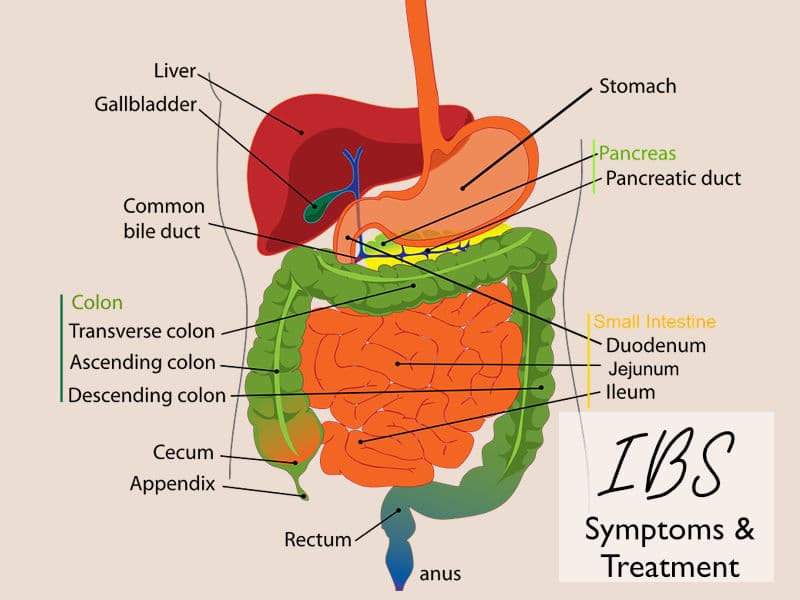Introduction: It’s Not “All in Your Head”—It’s All Connected
Mental health is often discussed separately from physical health, but growing research shows the two are deeply intertwined. When people experience anxiety, depression, or chronic stress, their bodies respond in ways that can impact digestion, immunity, heart health, and more. This phenomenon, known as the mind-body connection, reveals that what happens in the mind does not stay in the mind. It manifests in physical symptoms, from persistent headaches to digestive disturbances. Understanding this link is crucial for anyone seeking long-term wellness.
It is common for healthcare providers to dismiss certain physical complaints as “just stress,” but these symptoms often have a genuine physiological basis. For those looking to explore holistic approaches, Nava Health provides insight into integrating mental and physical care for overall well-being.
The Common Dismissal of Physical Symptoms as “Just Stress”
Many people experience symptoms like stomach upset, fatigue, or headaches and are told it is “all in their head.” This dismissal can be frustrating, especially when symptoms are persistent. The term psychosomatic illness is often misunderstood as being imaginary, but it refers to real physical effects caused or worsened by mental states such as stress or anxiety. For example, tension headaches are a direct result of prolonged muscle contraction triggered by stress, and gastrointestinal issues often stem from anxiety-related changes in gut motility.
Ignoring these signals can lead to chronic conditions. Recognizing the mind-body connection allows individuals to address both emotional and physical dimensions of health.
Introducing the Scientific Concept of the Mind-Body Connection
The mind-body connection refers to the complex interaction between thoughts, emotions, and physiological responses. The brain communicates continuously with the body through the nervous system, hormonal pathways, and the immune system. This connection explains why mental stress can exacerbate conditions like irritable bowel syndrome (IBS), high blood pressure, or chronic pain.
Scientific evidence supports interventions such as mindfulness, breathwork, and holistic therapy for anxiety to regulate this connection. Techniques like vagus nerve stimulation and mind-body medicine practices show measurable effects on both mental and physical health.
Thesis: Understanding This Link is Key to Unlocking a New Level of Health and Well-Being
By acknowledging the mind-body connection, individuals can move beyond merely treating symptoms. Instead, they can adopt a holistic view of health, addressing underlying causes of imbalance. Integrating mental wellness into physical health routines can reduce chronic stress symptoms, improve immune function, and foster emotional well-being and physical health. This approach is central to the work at Holistic Medicine & Wellness Center.
The Science of Stress: How Thoughts and Emotions Trigger Physical Reactions
The “Fight or Flight” Response: A Primer on the Sympathetic Nervous System
The fight or flight response is an evolutionary mechanism designed to protect humans from danger. When the brain perceives a threat, it activates the sympathetic nervous system, releasing adrenaline and preparing the body for immediate action. Heart rate rises, blood flow shifts to muscles, and digestion slows.
While helpful in short bursts, chronic activation due to persistent stress can have lasting consequences. Over time, the body remains in a heightened state, which contributes to chronic stress symptoms and can affect the physical body in profound ways.
Cortisol: The Stress Hormone and Its Domino Effect on the Body
Cortisol, commonly known as the stress hormone, plays a critical role in regulating metabolism, immune response, and blood pressure. When stress is prolonged, cortisol levels remain elevated, leading to inflammation, disrupted sleep, weight gain, and decreased immunity.
Research on cortisol and inflammation shows that high cortisol levels are linked to mental health disorders like anxiety and depression, creating a feedback loop where stress impairs physical health, which in turn worsens mental health.
From Acute Stress to Chronic Stress: When the Alarm Bell Never Turns Off
Acute stress is a short-term reaction that generally resolves once the threat passes. Chronic stress occurs when the stress response is activated continuously, affecting nearly every system in the body. Symptoms include digestive issues, persistent fatigue, weakened immunity, and hormonal imbalances.
Understanding how stress affects the body is essential for recognizing psychosomatic illness. Chronic stress can even manifest as physical pain, illustrating the somatization of stress.
The Vagus Nerve: Your Body’s Superhighway Between Brain and Organs
The vagus nerve serves as a communication highway between the brain and internal organs. Stimulating this nerve through techniques like deep breathing, meditation, or cold exposure can reduce stress, improve digestion, and enhance heart rate variability.
Vagus nerve stimulation is a practical way to regulate the nervous system and strengthen the mind-body connection, offering tangible benefits for both mental and physical well-being.
Physical Manifestations of Poor Mental Health: How Stress Shows Up in the Body
Digestive Distress: The Gut-Brain Axis and Issues Like IBS
The gut-brain axis describes the bidirectional communication between the central nervous system and the digestive tract. Stress can alter gut motility, increase inflammation, and disrupt microbiota, leading to conditions like irritable bowel syndrome.
Understanding the role of the gut-brain axis provides insights into how mental health affects digestion and why stress and digestive issues often go hand in hand.
Weakened Immunity: Why You Get Sick More Often When Stressed
Chronic stress impairs immune function by reducing lymphocyte activity and increasing inflammation. This makes the body more susceptible to infections and slows the recovery process. Stress-induced illness is a clear example of how emotional states directly influence physical resilience.
Chronic Pain & Inflammation: Headaches, Muscle Tension, and Joint Pain
Persistent stress often manifests as chronic pain, including tension headaches, back pain, and joint discomfort. Cortisol and other stress-related hormones contribute to systemic inflammation, aggravating existing conditions and creating a cycle of pain and stress.
Skin Problems: Eczema, Psoriasis, and Acne Flare-Ups
Mental health affects the skin through inflammatory pathways and hormonal changes. Stress can trigger flare-ups of eczema, psoriasis, and acne, highlighting how emotions affect health at the cellular level.
Hormonal Imbalance: Impacts on Menstrual Cycles, Libido, and Thyroid Function
Stress influences the hypothalamic-pituitary-adrenal axis, which regulates hormones. Chronic stress may disrupt menstrual cycles, reduce libido, and alter thyroid function, further demonstrating the physical effects of depression and anxiety.
Cardiovascular Strain: Increased Heart Rate and Blood Pressure
The cardiovascular system responds dynamically to stress. Persistent activation of the sympathetic nervous system raises heart rate and blood pressure, increasing the risk of heart disease and other cardiovascular conditions. Understanding how stress affects the body can guide lifestyle interventions to reduce risk.
The Opposite is Also True: How Physical Health Influences Your Mind
The Impact of Gut Health on Mood (Anxiety and Depression)
The gut produces neurotransmitters such as serotonin, which influence mood regulation. Disruptions in gut health can contribute to anxiety, depression, and brain fog, illustrating the cyclical nature of the mind-body connection.
How Chronic Inflammation Can Lead to Brain Fog and Fatigue
Systemic inflammation caused by poor nutrition, stress, or illness affects cognitive function. Chronic inflammation can impair focus, memory, and energy levels, emphasizing the need for interventions that address both mental and physical dimensions.
The Mental Boost from Exercise and Proper Nutrition
Regular exercise increases endorphins and supports nervous system regulation, while proper nutrition reduces inflammation and balances hormones. Together, these lifestyle factors enhance both mental health and physical well-being.
A Holistic Approach to Nurturing the Mind-Body Connection
Beyond Symptom Management: Addressing the Root Cause of Imbalance
A holistic approach to mental health involves treating the whole person, not just isolated symptoms. By considering emotional, physiological, and lifestyle factors, individuals can address root causes rather than only masking symptoms.
Mindfulness and Meditation: Training Your Brain to Calm Your Body
Mindfulness practices improve nervous system regulation and reduce cortisol levels. Meditation offers tangible health benefits, including lowered blood pressure, improved digestion, and relief from chronic pain.
Breathwork: The Fastest Way to Hack Your Nervous System
Controlled breathing techniques activate the parasympathetic nervous system, calming the body and mind. Breathwork for anxiety is a practical tool that quickly reduces stress and supports overall mental and physical health.
The Role of Nutrition in Supporting Mental and Physical Resilience
Nutrition plays a crucial role in brain health, inflammation control, and hormonal balance. Diets rich in anti-inflammatory foods, fiber, and healthy fats can enhance both cognitive function and physical well-being.
Practical Steps to Strengthen Your Mind-Body Connection Today
The 5-Minute Body Scan: A Simple Practice to Tune In
Body scan meditation helps identify areas of tension and brings awareness to subtle physical sensations. Practicing daily can improve stress management techniques and reinforce the mind-body connection.
Mindful Movement: Yoga, Tai Chi, or Simply Walking with Awareness
Engaging in mindful movement encourages nervous system regulation, reduces stress, and improves flexibility. Activities like yoga and tai chi support both mental health and physical resilience.
Journaling: Getting Thoughts Out of Your Head and Onto Paper
Journaling is an effective method to process emotions and clarify thoughts. Expressing stress and anxiety on paper can reduce rumination and help the body release tension.
When to Seek Professional Help
How a Holistic Practitioner Investigates the Mind-Body Link
Holistic practitioners evaluate both emotional and physical health to identify imbalances. They may incorporate nutrition, movement therapy, mindfulness, and other modalities to address stress-induced illness and somatization of stress.
The Importance of a Collaborative Approach with Mental Health Professionals
Integrating therapy, counseling, or psychiatric care with holistic strategies ensures comprehensive support. A collaborative approach enhances recovery from psychosomatic illness and strengthens the mind-body connection.
Conclusion: Your Body is Always Listening to Your Mind
Recap: The Inseparable Link Between Mental and Physical Health
Mental health and physical well-being are inseparable. Chronic stress, anxiety, or depression can manifest as digestive issues, chronic pain, weakened immunity, and more. Conversely, physical health issues can exacerbate mental health conditions, creating a continuous feedback loop.
Embracing a Holistic View for Deeper Healing
Adopting a holistic view of health allows individuals to address the root causes of imbalance. Mindfulness, breathwork, proper nutrition, and movement all contribute to a more harmonious mind-body connection.
Call to Action: Learn how Nava Health’s integrated approach can help you harmonize your mind-body connection
Discover how Nava Health provides integrated care to support mental health, stress management, and overall physical well-being. Schedule your appointment today to start your journey toward holistic wellness.
Frequently Asked Questions (FAQs)
1. What is the mind-body connection?
The mind-body connection refers to the link between mental and physical health, where thoughts, emotions, and stress can affect bodily functions and vice versa.
2. Can stress cause physical pain?
Yes, stress can lead to chronic pain such as headaches, muscle tension, joint pain, and digestive disturbances.
3. How can I improve my mind-body connection?
Practices like mindfulness meditation, body scan exercises, breathwork, yoga, and balanced nutrition help strengthen the mind-body connection.
4. What is the role of the gut in mental health?
The gut-brain axis demonstrates that gut health impacts neurotransmitter production and mood regulation, influencing anxiety, depression, and cognitive function.
5. When should I seek professional help for mind-body health?
If stress or mental health issues are affecting your physical health or daily functioning, consult a holistic practitioner or mental health professional for a collaborative approach.



